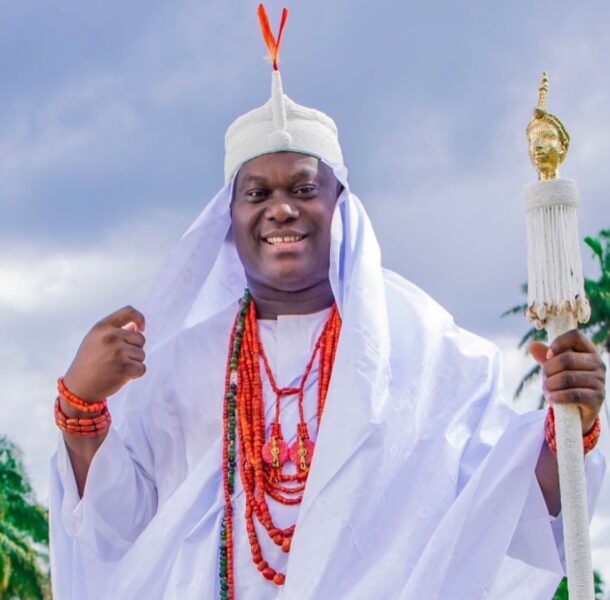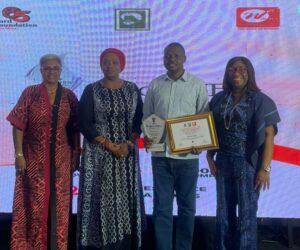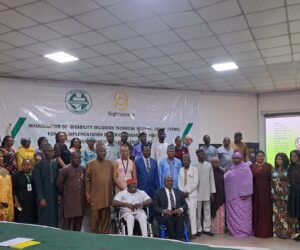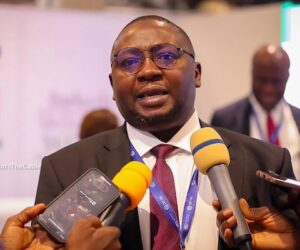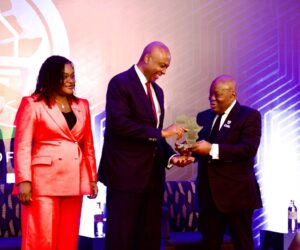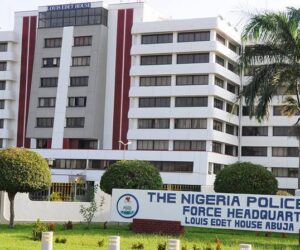Traditional rulers in the South-west geopolitical zone have called for robust support for the Special Seats Bill, which is currently before the National Assembly for consideration.
The traditional rulers, led by the Ooni of Ife, Enitan Ogunwusi, made the call on Friday in Abuja at a parley organised by the National Institute for Democratic and Legislative Studies (NILDS) to garner support for the bill to be passed by the 10th National Assembly.
The Special Seats Bill proposes additional constitutionally-backed seats for women across federal and state legislative assemblies.
The bill, if passed into law, analysts said, would correct decades-long gender imbalance in political representation in the country.
Mr Ogunwusi, who described the bill as “a long-overdue corrective instrument,” urged lawmakers to align legislative authority with moral responsibility by supporting more representation for women in the country’s political space.
The traditional ruler said, “Women produce, nurture and multiply everything we give them, yet we treat them as afterthoughts. It is not fair,” the Ooni declared to thunderous applause.
“We must give them more inclusion, more participation in anything we do. This initiative is yielding results already, and we traditional rulers stand firmly behind it,” he added.
Harping on how Nigeria treats women, using an analogy, the Ooni said: “We treat them like caterpillars that clear the road. After they prepare the road, we tell them they cannot pass. Is that fair? No.”
Traditional rulers, he said, would mobilise their constituencies, particularly in the South-west, to ensure broad-based political backing for the bill
“We understand how to speak to our subjects. We will engage them. We are not using force but appealing with wisdom,” he said.
Mr Ogunwusi used the occasion to commend Nigeria’s First Lady, Oluremi Tinubu, whom he described as “mother of the nation,” praising her decades-long commitment to girl-child education and women’s empowerment.
“A lot of the seeds she planted are the fruits we are celebrating today,” he said.
Parley convened to build momentum for the bill ahead of constitutional amendments – NILDS DG
In his opening remarks at the occasion, the Director-General of NILDS, Abubakar Sulaiman, said the convening was specifically designed to build political momentum ahead of constitutional amendments.
He noted that Nigeria currently sits at less than five per cent women’s representation, one of the lowest globally, and that existing electoral frameworks have failed to produce equitable outcomes despite multiple advocacy cycles.
Mr Sulaiman, a professor, said, “The Special Seats Bill is a temporary but necessary affirmative action measure, grounded in constitutional equality and aligned with global commitments such as CEDAW and the Maputo Protocol.
The director general cited continental examples to underscore the bill’s transformative potential, asserting that “affirmative action works.”
He highlighted successful models across Africa, including Rwanda, Tanzania, Uganda and Senegal, arguing that affirmative action has consistently delivered stronger governance outcomes.
Mr Sulaiman noted that increased women’s presence in these countries has led to championing policies concerning education, healthcare, social welfare, and human security, directly impacting household well-being and societal stability.
“When women are at the table, policy outcomes become more responsive to education, healthcare, social welfare and human security. This is not theory, African evidence shows it,” he said.
The DG stressed that for the legislative reform to be sustainable, it must gain legitimacy not only from institutions but also from “societal and cultural values.”
He commended the presence of the Ooni of Ife, describing it as a “powerful demonstration of how traditional leadership can complement modern governance structures in driving transformative policy change.”
Civil society leaders speak
Some civil society leaders also made presentations at the parley.
Ene Obi, former Country Director of ActionAid and a leading member of the 100 Women Lobby Group, underscored the urgency of legislative intervention to provide for women’s representation.
According to Ms Obi, 14 state assemblies in Nigeria have no female members.
She said, “In these states, committees on women’s affairs are chaired and manned entirely by men. How do we expect policies that affect women’s lives, maternal health, gender-based violence, and education to be properly addressed when those who understand the pain are absent from the table?”
Nigeria ranks among the bottom five globally in maternal mortality, she affirmed.
ALSO READ: Ooni of Ife inspires new wave of female tech talents in Lagos
She said, “Every pregnant woman in Nigeria is on a death row. If women are not in the room when decisions are made, then their issues will never make it to the agenda.”
She recalled that during the Ninth Assembly, five gender bills, including one on special seats, were thrown out, which led to weeks of protest by women’s groups who blockaded the National Assembly gates.
She said, “We burnt in the Abuja sun for four legislative weeks, and yet they did not hear us. But the 10th Assembly has given us hope. They promised not to throw away gender bills again.”
She urged lawmakers to aim higher than the current numbers, arguing that proportional representation demands at least eight additional Senate seats rather than six.
About the Special Seats Bill
The bill seeks to amend the 1999 Constitution to create additional legislative seats specifically for women in the National Assembly and State Houses of Assembly.
At the National Assembly level, the bill proposes one special seat reserved exclusively for women in the Senate and House of Representatives for each state and the Federal Capital Territory (FCT), totalling 74 additional seats at the federal level.
The bill proposes three special seats for women in the Houses of Assembly of each state, totalling 108 additional seats.
The seats are designed as a temporary special measure to address the low representation of women and would be contested and filled only by women in general elections.
The bill has passed Second Reading in the House of Representatives and has been referred to the House Committee on Constitution Review for further legislative action.
The parley ended with a shared commitment to establish a regional advocacy framework anchored on South-west traditional rulers, legislators and women’s groups, with NILDS providing technical support.
The Ooni closed the session with a final charge: “We have seen how our young women excel in schools and across sectors.
“They will lead this nation one day, if we create space for them now. The legislative arm is the next frontier, and we are here to make history,” he added.
Several traditional rulers and leading women’s groups attended the gathering.

